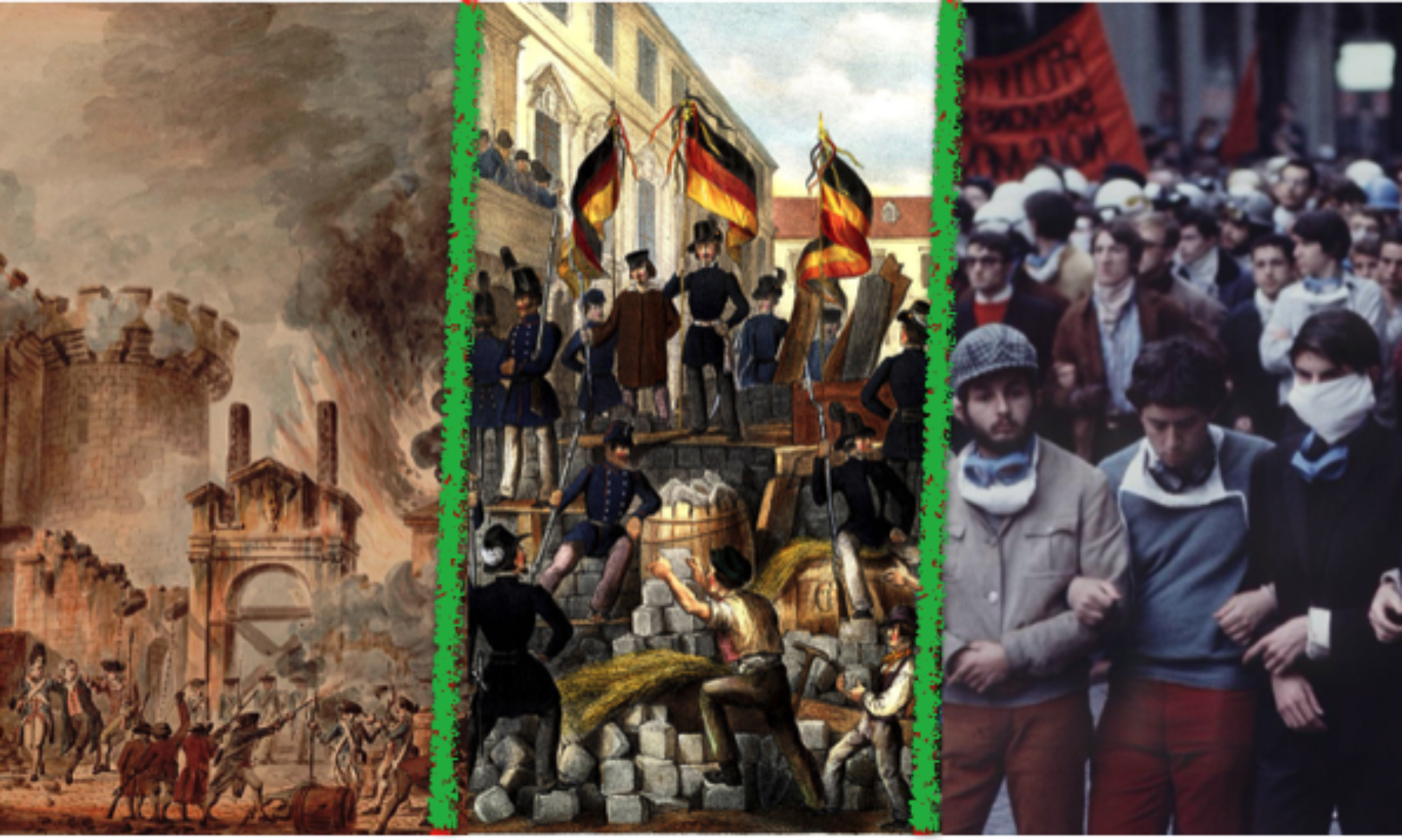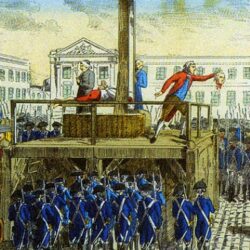For class on Thursday, we had to read the primary source titled “Street Fighting Years” The Year 1968″, which is an autobiography that recounts the events that occurred in 1968, specifically events that occurred in each month of that year. The month that I want to focus on for discussion was the month of February. In the month of February we were presented to the West Berlin SDS, a student movement that began in Germany. As noted in the source, the emergence of the SDS marked a turbulent time in Germany’s history. There was a sudden radical change in politics in Germany, given that students began to become more aware of the rise of fascism, which was something that the previous generation refused to acknowledge and combat. The source also discusses the issue of an active minority vs a passive minority, which is what I wanted to talk about for class today. To what extent can students actually be “active minorities? And is the SDS a fully politicized movement in Germany as it was in France?
The March 22nd Movement
For class on Tuesday, we had to analyze “The March 22nd Movement” which was a student revolt that occurred outside the University of Nanterre in May 1968 in France. As stated in this reading, the student revolt was established with the purpose of improving their working conditions at the university. This reading touches on various aspects of the nature of the movement, but the one I want to focus on for discussion is the aspect that the movement was a politicized one. The movement itself was one that as the reading states was built upon non-union topics. But given that this was a fully politicized movement and many previous politicized movements proved to fail (*cough* the French Revolution *cough*) how successful can this movement be considered? And how can these students of Nanterre ensure that the changes that they achieve are not simply a in the moment change but instead a long term one?
Situationism
In this chapter we are presented to a new form of practice, Situationist Practice. Situationism revolved around the artistic and creative sphere when it was first put into movement. Soon after, their conviction and drive for meanings began to change the direction of the movement itself. One of the biggest focuses for Situationists was the study of non-alienated life. However, as noted in the text, the movement itself hit a standstill and in order to speed up the process, situationists began to create scenarios for anyone that was willing to listen to what it is that they had to say with regards to non-alienated life. At the time, it was considered an absurdity what situationists were promoting, but I wanted to ask the class this: If you were to listen to a situationist, would you be skeptical about life as well? Or would you need more hard found proof? And what would you say to counter the Situationists belief in their movement?
Addressing the demands of the Hungarian People
For class we had to analyze the primary source regarding the Hungarian Government addressing the issue of demands by the Hungarian People. In this address, the issue of the Majesty refusing and or preventing the development of a constitutional system in Hungary is brought to light. One of the first tasks that is addressed is that the Hungarian Government needs to begin to “alleviate the burdens of the peasantry” (420). This includes granting political rights to Hungarian People and reforming the military as a whole. Given these measures that the Hungarian People have proposed, it is important to note that they are all considered to be aid to the constitutional progress of the country and the elevation of the moral and material condition of the country (420). Given these demands, the question that I would like to pose for discussion is that is it necessary for military reform to be at the front of constitutional progress? Is it because the military has established enough power over the peasantry and the country that it has begun to bring into question the safety of the country?
The Workers’ Union
For class on Tuesday we had to analyze and divulge the primary source document titled “The Workers’ Union” written by Flora Tristan. Flora Tristan was an early socialist feminist in the 1840s. One of the ways that she preached political activism was the use of the Workers’ Union. One of the issues that Tristan touched on was the miserable and terrible conditions that have been put in place in society for the workers. Tristan also touches on the rights that workers do not have so much so that they do not even have the right to beg. My question that I would like to propose for discussion, is given the success that could come from the Workers’ Union, what could be a reason that workers may question joining in unity? What could be consequences of doing so?
Conflict in the Countryside
For the reading for class today, we began to analyze the social conflict that began to occur pre-1848 in Europe. One of the first social conflicts that began to come into question was the conflict that was arising in the countryside. One of the main issues that arose from this social conflict was the definition of “private property”. For most of the French Revolution and pre-1848, there was no clear cut definition, after all many farmers would grow crops and pasture animals on the property of others. Yet what caught my attention in this conflict is the role that economic growth played on it. Economic growth during this time arose from a result of population growth which in turn put a strain on a lot of the supplies that farmers were producing (such as wood, wool, etc). It is this sudden boom in the economy in Europe that also brought into question the exploitation of usage rights. The question I wanted to propose for discussion for class is how is the exploitation of usage rights in Germany, Austria, and France comparable? And were the lawsuits that farmers brought onto their respective governments effective?
“The Price of Liberty: Victor Hughes and the administration of freedom in Guadeloupe, 1794-1798”
In this reading for today, we had to read and analyze a document written by Laurent Dubois that analyze the price of liberty during the French Revolution. One of the aspects of the French Revolution that Dubois analyzed that caught my attention was the issue of the “active” vs “passive” citizen. Dubois described a passive citizen as one who is protected under the laws but is not qualified to vote while an active citizen can participate in the entire voting process and be elected as well. It was interesting to me how during the French Revolution there was a divide for what defined a citizen. It is this division that also to me shows how there was a divide as a nation in France. My question is, can a nation truly be considered one if there is active vs passive citizens?
“War Between Brothers and Sisters”
For class we had to read the document titled “War Between Brothers and Sisters: Inheritance law and gender politics in revolutionary France” and the topic of inheritance law was an issue that I was never truly aware how big of an issue it was in the French Revolution. in 1793-1794, it was established that all property would be divided equally among offspring regardless of being illegitimate or not. It was no surprise however that even though this inheritance law was put into place there was still a divide on gender relations between families (as a result of sons being favored over daughters and marriage arrangements). One of the issues that was touched upon on page 220 and page 221 was the issue of tradition. Dezan stated that “Moreover, by offering equal inheritance rights to women as rights-bearing individuals, the reforms undermined family strategies and called into question traditional assumptions about the status and position of women (221).” With Dezan describing the issue that comes with offering equal inheritance rights, is there a point in time where one can truly abandon tradition for the sake of growing as a society? and in the case of this document, why describe such a difference between women and “rights-bearing” individuals?

